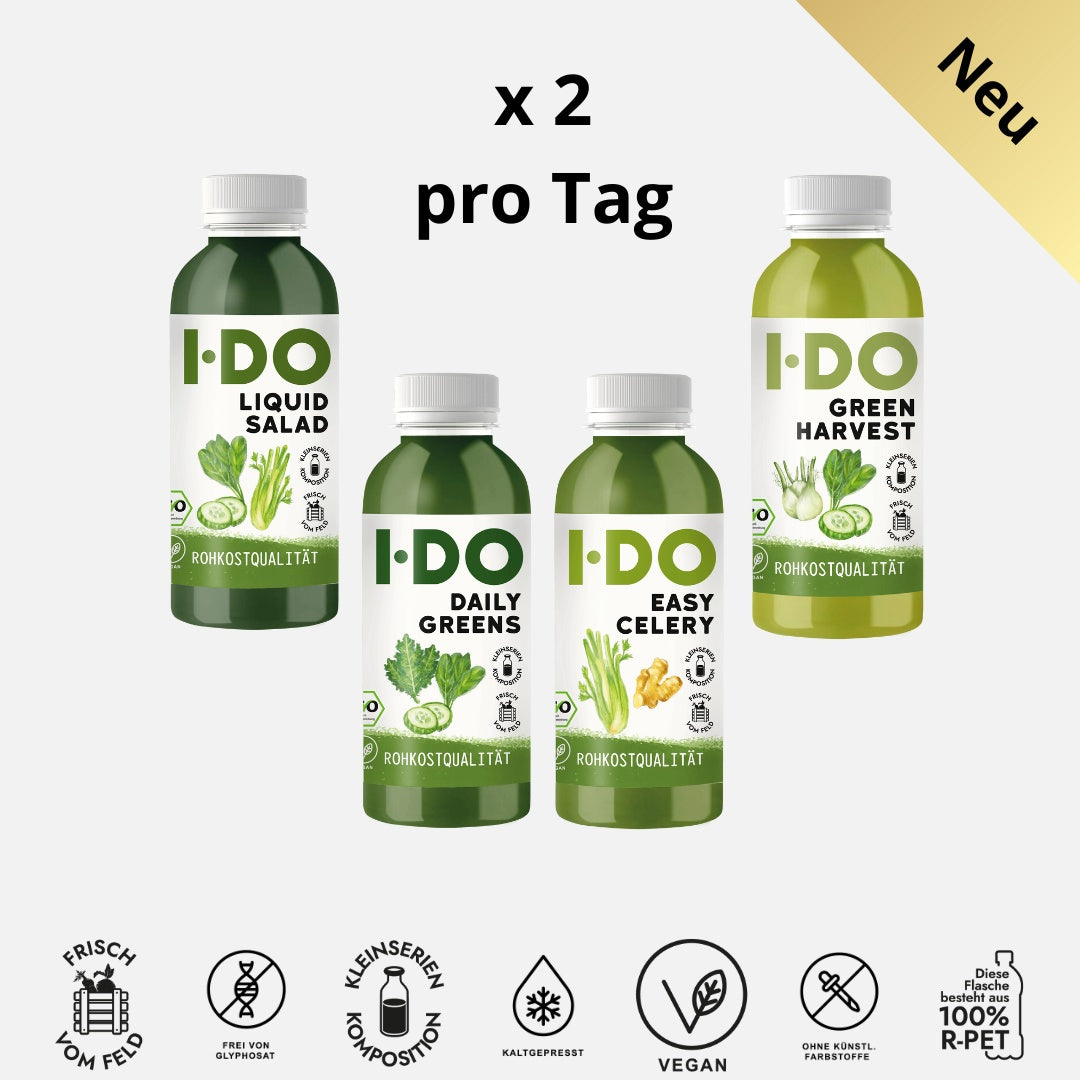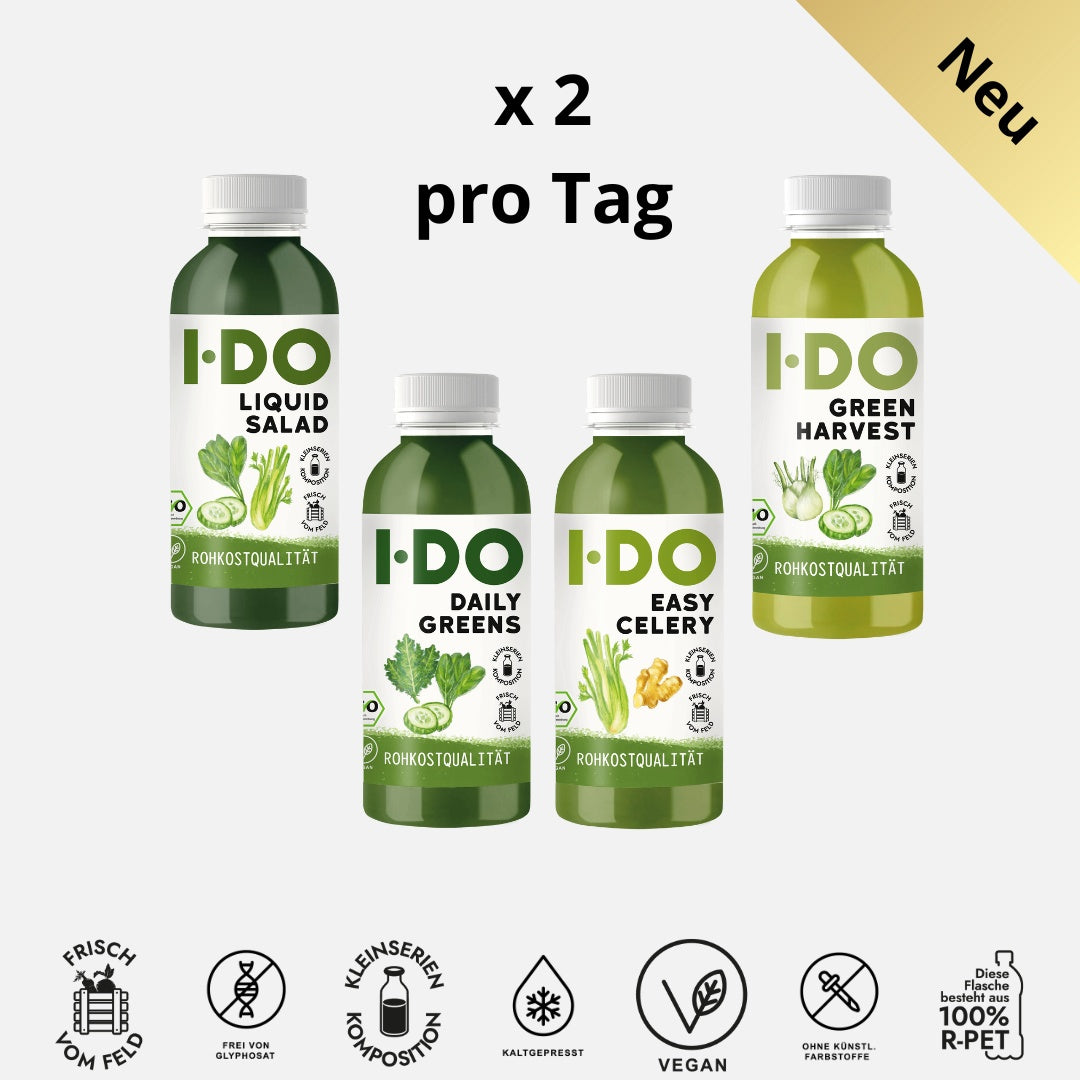Menopause is a natural phase of life, but it brings many changes. As estrogen levels decline, metabolism, muscles, and the cardiovascular system change—a natural consequence of hormonal fluctuations (1,3). Many women notice changes in energy levels, body image, and weight during this time (1,3,4).
The good news: Nutrition can become a powerful ally during this time. Studies show that a balanced, nutrient-rich diet can help to better manage typical menopausal symptoms and support overall well-being (1,3,4). All without strict diets or rigid rules, but with more balance, energy, and serenity.
Why nutrition is so important during menopause
As estrogen levels decline, many bodily processes change. Energy consumption decreases, muscle mass is more easily lost, while fat—especially in the abdominal area—is more readily stored. At the same time, sensitivity to blood sugar fluctuations increases, and heart health becomes more strongly influenced by lifestyle (1,3,4).
During this phase, it is therefore crucial to regularly supply the body with nutrients that stabilize metabolism, hormones, and energy levels. Instead of strict diets, the principle now is: balance rather than deprivation.
1️⃣ Balance instead of deprivation – how to keep your metabolism & energy levels up
Studies show that a balanced, varied diet can help regulate typical symptoms of menopause such as weight gain, muscle loss or increased blood lipid levels (1,3,4).
The important thing is to eat regularly and provide the body with a constant supply of energy, instead of skipping meals or radically reducing calories.
Proteins play a key role in this process:
Menopausal women should consume about 0.8–1.2 g of protein per kilogram of body weight – ideally from a variety of sources such as legumes, soy, fish, eggs or nuts (1,3).
A good balance of complex carbohydrates, healthy fats and fiber also helps to keep blood sugar stable and avoid energy crashes.
👉 Practical tip: Plan regular meals, reduce sugar and white flour products, and focus on natural, minimally processed foods.
2️⃣ Mediterranean diet – the recipe for success for balance & well-being
One dietary pattern that has been particularly praised in several studies is the Mediterranean diet. It is based on fresh vegetables, legumes, whole grains, nuts, fruit, fish, and high-quality, cold-pressed olive oil.
Women who follow this diet report milder menopausal symptoms, a more stable mood and better energy levels (2,4).
Olive oil, legumes, and green vegetables are particularly important. They provide valuable antioxidants, phytochemicals, unsaturated fatty acids, and micronutrients that support body and mind.
You can find more information about the Mediterranean diet in our article "Mediterranean diet - what makes it so special".
3️⃣ Small changes with a big impact
The British Menopause Society recommends making sustainable adjustments rather than starting strict diets (3). The goal is not to control the body, but to lovingly support it.
Here are simple steps you can implement immediately:
🥗 Regular meals instead of unconscious snacking – regular meals keep blood sugar stable.
🥜 More plant-based protein sources and whole grain products – they promote satiety and stabilize energy.
🐟 1-2 portions of fatty fish per week – provides you with Omega-3 fatty acids for heart and brain.
🚶♀️ Regular exercise – especially light strength training – helps to maintain muscle mass and bone density.
Even small routines like a daily walk, an extra portion of vegetables a day, or more conscious chewing can make a noticeable difference.
4️⃣ Important nutrients during menopause
The need for certain micronutrients changes during menopause. Studies repeatedly emphasize the importance of:
– Vitamin D & Calcium: support bone health and prevent osteoporosis.
– Omega-3 fatty acids: promote heart health, cell metabolism and inflammation regulation.
– B vitamins & vitamin C: support energy metabolism and help reduce fatigue.
– Iron, iodine & vitamin B12: important in a plant-based diet to maintain energy and thyroid function.
A varied diet including legumes, green vegetables, nuts, fish and whole grains provides many of these nutrients (1,3).
5️⃣ Plant diversity for hormonal balance
Research shows that plant-based dietary patterns are associated with better hormonal balance, healthier weight and less inflammation (1,4).
Plant-based foods not only provide important nutrients, but also secondary plant compounds such as isoflavones (e.g. from soy), which can act in the body similarly to weak phytoestrogens.
These help the body to cope more gently with hormonal fluctuations, naturally and without medication (1,4).
6️⃣ Exercise and nutrition – the perfect duo
Besides diet, exercise plays a key role. Even moderate activity such as walking, yoga or swimming can help boost metabolism, maintain muscle mass and improve mood (1,3).
In combination with a nutrient-rich, Mediterranean-style diet, regular exercise can help stabilize weight, strengthen cardiovascular functions and balance energy levels.
Conclusion: Nutrition as the key to well-being during menopause 🌸
Menopause is not a time of deprivation, but an invitation to reconnect with one's own body.
A balanced diet – rich in plant-based foods, healthy fats, protein, and essential micronutrients – can help alleviate common ailments, stabilize energy levels, and strengthen both body and mind. The more colorful, natural, and varied your plate is, the better your body can support you during this phase of life.
In the long run, every small step pays off: more balance, more vitality and a more relaxed feeling about life amidst change (1,3,4).
Even in everyday life, things can be simple, for example with cold-pressed organic juices that help you bring more plant-based variety into your diet. Our I·DO organic raw food juices consist of 100% fruits, vegetables, and superfoods of certified organic quality – completely without additives, but full of flavor. An uncomplicated way to do something good for your body every day.
Sources:
(1) Erdélyi A, Pálfi E, Tűű L, Nas K, Szűcs Z, Török M, Jakab A, Várbíró S. The Importance of Nutrition in Menopause and Perimenopause – A Review. Nutrients. 2023;16(1):27. https://pmc.ncbi.nlm.nih.gov/articles/PMC10780928/
(2) Vetrani C, Barrea L, Rispoli R, Verde L, De Alteriis G, Docimo A, Auriemma RS, Colao A. Mediterranean Diet: What Are the Consequences for Menopause? Front Endocrinol (Lausanne). 2022;13:886824. https://www.frontiersin.org/journals/endocrinology/articles/10.3389/fendo.2022.886824/full
(3) Denby N. Menopause: Nutrition and Weight Gain. British Menopause Society, Tool for Clinicians. June 2023. https://thebms.org.uk/wp-content/uploads/2023/06/19-BMS-TfC-Menopause-Nutrition-and-Weight-Gain-JUNE2023-A.pdf
(4) Gonçalves C, Moreira H, Santos R. Systematic Review of Mediterranean Diet Interventions in Menopausal Women. AIMS Public Health. 2024;11(1):110–129. https://www.aimspress.com/aimspress-data/aimsph/2024/1/PDF/publichealth-11-01-005.pdf












